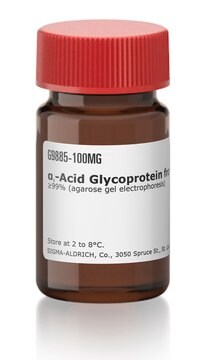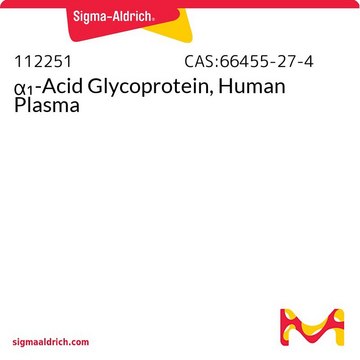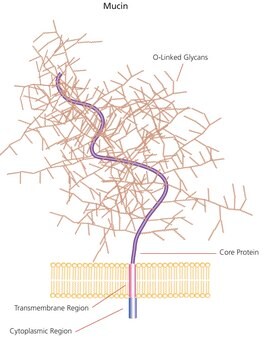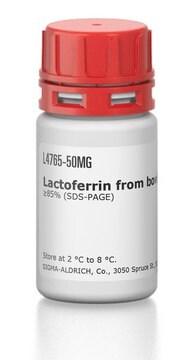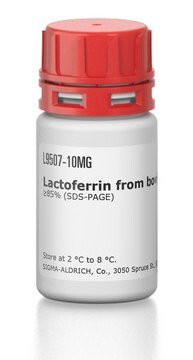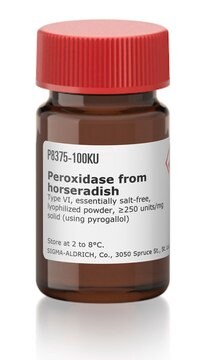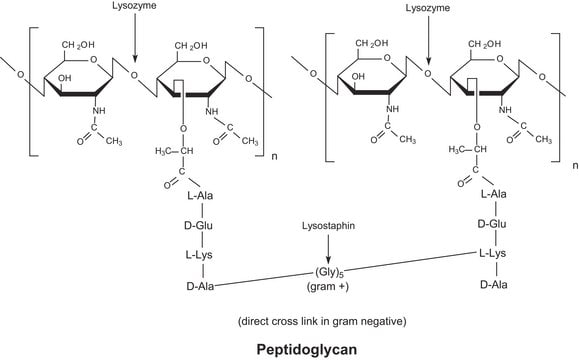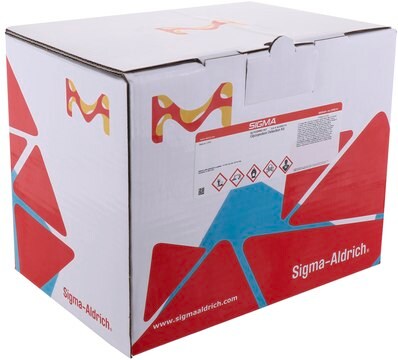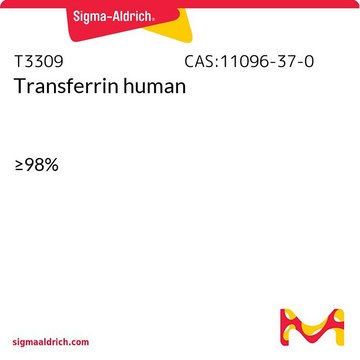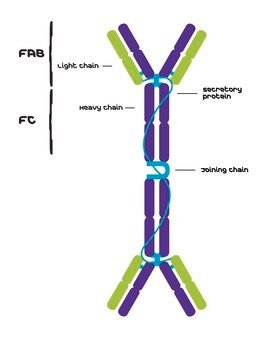G3643
α1-Acid Glycoprotein from bovine plasma
≥99%
Synonyme(s) :
Orosomucoid
About This Item
Produits recommandés
Source biologique
bovine plasma
Pureté
≥99%
Forme
powder
Technique(s)
electrophoresis: suitable
mass spectrometry (MS): suitable
Numéro d'accès UniProt
Température de stockage
2-8°C
Informations sur le gène
bovine ... ORM1(497200)
Vous recherchez des produits similaires ? Visite Guide de comparaison des produits
Description générale
Application
- in mass spectrometry analysis to confirm the presence of Neu5Ac and Neu5Gc distribution in human and bovine AGP respectively
- for pretreating the microvessel before perfusing the MDA-MB-231 cells for tumor adhesion studies
- in the composition of tear model
- as a reference in sodium dodecyl sulphate-polyacrylamide gel electrophoresis (SDS-PAGE)
Actions biochimiques/physiologiques
Code de la classe de stockage
11 - Combustible Solids
Classe de danger pour l'eau (WGK)
WGK 3
Point d'éclair (°F)
Not applicable
Point d'éclair (°C)
Not applicable
Équipement de protection individuelle
Eyeshields, Gloves, type N95 (US)
Certificats d'analyse (COA)
Recherchez un Certificats d'analyse (COA) en saisissant le numéro de lot du produit. Les numéros de lot figurent sur l'étiquette du produit après les mots "Lot" ou "Batch".
Déjà en possession de ce produit ?
Retrouvez la documentation relative aux produits que vous avez récemment achetés dans la Bibliothèque de documents.
Les clients ont également consulté
Articles
The use of PNGase Fast denaturing buffer and enzyme yielded results similar to a conventional 20-hour protocol with overnight digest while reducing workflow time to about 1 hour with a 15-minute digest.
Notre équipe de scientifiques dispose d'une expérience dans tous les secteurs de la recherche, notamment en sciences de la vie, science des matériaux, synthèse chimique, chromatographie, analyse et dans de nombreux autres domaines..
Contacter notre Service technique